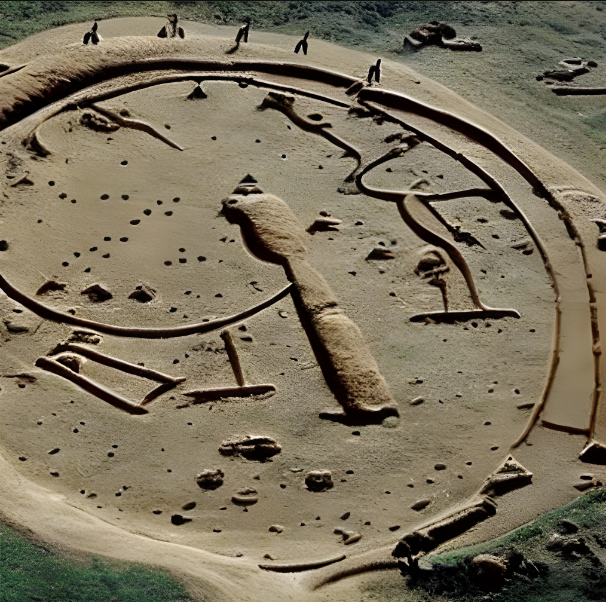Ancient India's rich history
Ancient India is a land of rich cultural heritage and history that dates back to several thousand years. It is a land of diversity and spirituality that has been the birthplace of many great religions, philosophies, and civilizations. Ancient India has made remarkable contributions to the world in the fields of science, mathematics, art, literature, and religion, which still inspire people all over the world.
The history of ancient India can be traced back to the Indus Valley Civilization, which flourished around 2600 BCE in the northwestern region of the Indian subcontinent. This civilization was known for its advanced urban planning, trade, and craftsmanship, as evidenced by the ruins of cities like Harappa and Mohenjo-Daro. The Indus Valley Civilization was followed by the Vedic period, which is characterized by the emergence of the Vedas, the earliest sacred texts of Hinduism, and the caste system.
The Mauryan Empire, founded by Chandragupta Maurya in 322 BCE, was the first major empire of ancient India. Under the rule of Emperor Ashoka, the Mauryan Empire reached its peak, with its capital at Pataliputra (present-day Patna). Ashoka is known for his conversion to Buddhism and his promotion of non-violence and religious tolerance.
The Gupta Empire, founded by Chandragupta I in 320 CE, is considered the Golden Age of ancient India. It was a time of great prosperity and cultural advancement, as seen in the fields of art, literature, mathematics, and science. The Gupta period also saw the development of the decimal system, which laid the foundation for modern-day mathematics.
Ancient India was home to several great religions, including Hinduism, Buddhism, Jainism, and Sikhism. Hinduism, the oldest and largest religion in India, has its roots in the Vedas and is known for its diverse pantheon of gods and goddesses, complex rituals, and the concept of karma and reincarnation. Buddhism, founded by Gautama Buddha in the 6th century BCE, emphasizes the Four Noble Truths and the Eightfold Path as a way to attain enlightenment and escape the cycle of birth and rebirth.
In the field of science, ancient India made significant contributions to astronomy, mathematics, and medicine. The Aryabhata, an astronomer and mathematician who lived in the 5th century CE, made important contributions to the field of mathematics, including the concept of zero and the decimal system. The Charaka Samhita, written by the physician Charaka in the 2nd century BCE, is considered one of the earliest and most comprehensive texts on Ayurveda, the ancient Indian system of medicine.
Ancient India also had a rich tradition of art and literature. The Ramayana and Mahabharata, two epic poems that date back to ancient India, are considered some of the greatest works of literature in the world. Indian classical dance and music, such as Bharatanatyam and Hindustani classical music, have their roots in ancient India.
In conclusion, ancient India is a land of rich cultural heritage and history that has left an indelible mark on the world. Its contributions to the fields of science, mathematics, art, literature, and religion continue to inspire and influence people all over the world. The legacy of ancient India is a testament to the enduring power of human creativity, ingenuity, and spirituality.







Comments
Post a Comment